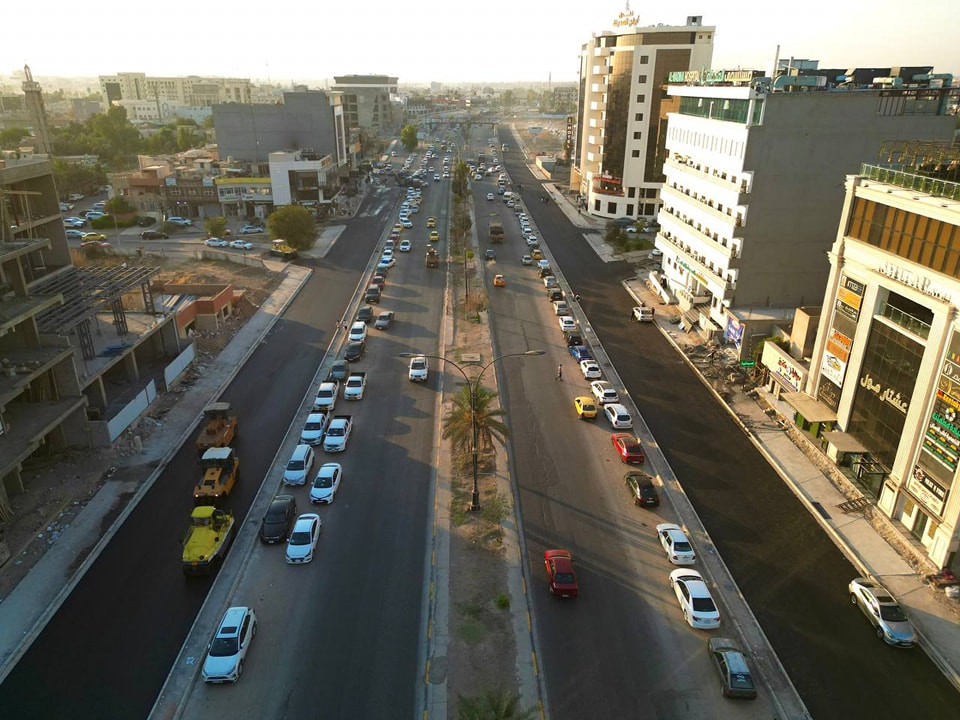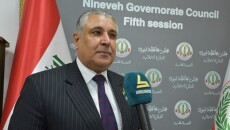Nineveh Governor has announced the allocation of compensation budget for people incurred losses by war and several other public projects, and the provincial council has complained about the disruption of work, leaving dozens of "important" cases pending.
Abdul Qadir Dakhil told a news conference on Monday, October 7, 2024, that he received approval to spend 100 billion Iraqi dinars IQD (USD653,000) to compensate Mosulawis incurred losses by the war against the Islamic State of Iraq and Syria ISIS between 2014 to 2017.
"More than 11,000 people will receive compensation from the amount of money that is expected to arrive soon and their names will be published," the governor said. This includes victims of the ISIS war, including those whose property has been destroyed.
He also said that Nineveh has faced much "treachery" in the past, while it is a constitutional and normal right of the people to be compensated for the destruction and damage, the budget sent to the province mostly goes to war-torn western areas, including Tala'afar and Shingal (Sinjar).
In addition to destruction, IS killed, kidnapped, and displaced thousands of civilians in Shingal, home for non-Muslim Ezii community, and Tala'afar from mid-2014 until the end of its rule in mid-2017.
The military operation to defeat IS in Iraq has resulted in almost $50 billion damage to houses, power plants, schools, and other civilian infrastructure in seven IS-occupied provinces (Anbar, Babil, Baghdad, Diyala, Kirkuk, Ninawa, and Salahaddin), an assessment by the World Bank WB found in 2018.
The governor of Nineveh talked about several service projects for the province, including those approved with those still under negotiation, stressing that out of more than 100 slow and disabled projects, only 20 projects are slowly implemented now.
“Our goal is to encourage the displaced (IDPs) to return to their areas through services and projects, especially Christians, Ezidis (Yazidis), and others.”
He denied that the disruption of the provincial council will have a direct impact on the work of the Nineveh local government, as "all committees and members work as a team. There is only disagreement on the head of administrative units.
The Nineveh provincial council has been unable to hold regular sessions for weeks due to factions over the distribution of ranks and positions.
Mohammed Abdullah Jiburi, deputy chairman of the Nineveh provincial council, told a news conference attended by KirkukNow that five of the 20 standing committees still have only a chairman and members have not been appointed.
"15 important and sensitive issues are waiting for the council to discuss and approve," Jiburi said after the meeting of the heads of committees on October 6.
The deputy speaker of the council said the committees' duty is to submit their investigation reports so that the council can decide and vote on it, "because there are many important issues, some of which are financial and should not be delayed.
The council is divided into two factions. The first is the Future Nineveh Alliance, which successfully elected the heads of the administrative units holding 16 out of 29 total seats. This faction comprises the Coordination Framework forces, the Patriotic Union of Kurdistan PUK bloc, Sunni members, and three minority quota members.
The second faction consists of the United Nineveh Alliance and the KDP, holding 13 seats.
The Presidency of the Council was elected months ago as part of a single package with the positions of the governor and his two deputies, according to an agreement between all the blocs, including the United Nineveh Alliance.
The KDP says they seek guarantees through agreement by senior official of the parties in Baghdad.
The Nineveh council and local government, including the posts of council speaker, governor, and deputies, were appointed in February by consensus of all council factions.
*This story has been produced as part of the 'Budget is Your Right' initiative, with support from the National Democratic Institute (NDI).






